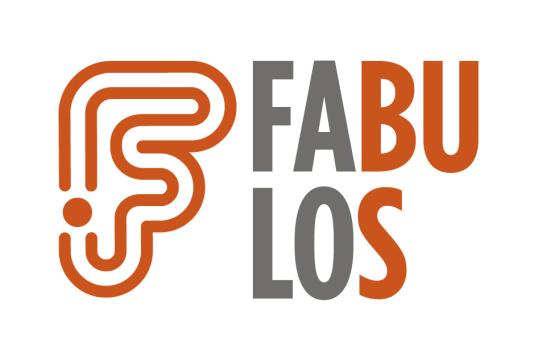- Topic
- Autonomous and connected vehicles
- Collective passenger transport
- Country
- Finland
- Resource type
- Case study
First published on 5 September 2019.
Helsinki leads the largest ongoing European Pre-Commercial Procurement project in the field of urban mobility.
Six procuring authorities from around Europe provide funding to a dozen companies to develop solutions for smart systems that can operate fleets of automated shuttle buses as part of regular public transportation. The €8 million Horizon2020 project is coordinated by Forum Virium Helsinki, the non-profit innovation company of the city.
Context
Helsinki aims to be carbon neutral by 2035. In addition, the city wants to be a pioneer in overall functional smart traffic systems.
The city strategy 2017-2021 encourages a transition to a demand-driven traffic system and Helsinki aims to serve as a testing platform in the commercialisation of new smart mobility solutions which are being enabled by current transport legislation and in the promotion of tomorrow’s technologies. Solutions to traffic problems can come from automation and notably also from public transport. The city believes that robot buses can have a positive impact on the attractiveness and use of public transport. By enabling a multitude of projects with autonomous shuttles, Helsinki prepares for a future where autonomous mobility will be the norm.
In action
Cities have a crucial role as regulator, facilitator and demonstrator of new mobility technologies. This is exemplified by the test-ecosystem in the Finnish capital. Helsinki has a long history of successful public-private partnership (PPP) collaboration in relation to trials with automated shuttle buses. By working with companies in this field, for example via a Pre-Commercial Procurement (PCP), the city builds an autonomous mobility ecosystem - at the same time, increasing the knowledge base of all stakeholders.
The Pre-Commercial Procurement project called FABULOS is the largest and most recent autonomous shuttle project. It has over €5 million available for industry partners to co-create a solution that meets the mobility needs of the six front-runner cities, who work as a joint procuring organisation. The partners involved are the Finnish Forum Virium Helsinki (Coordinator and Lead procurer), the Estonian Ministry of Economic Affairs and Communications (pilot in Tallinn), the Norwegian Municipality of Gjesdal, the Municipality of Helmond in the Netherlands, the Greek Municipality of Lamia, the STCP who are public transport provider of the Metropolitan area of Porto, Portugal, and technical partner, Helsinki Metropolia University of Applied Sciences in Finland.
Other than reducing car use, stimulating public transport and “preparing for the future”, these partners also want to gather data and insights into what works and what does not. The R&D work of companies in a PCP takes place in 3 phases:
- Feasibility study (Jan-April 2019),
- Prototype development and lab testing (June-Dec 2019) and lastly;
- Testing of the prototype solution in real-life conditions (March-Oct 2020).
These steps are followed by a commercialisation process. Consortia that are currently developing their prototypes in Phase 2 are:
- Saga consortium formed of four Norwegian companies and one partner from Canada,
- Sensible4-Shotl consortium with partners from both Finland and Spain,
- FVF consortium with three Finnish partners,
- Mobile Civitatem consortium which includes Estonian and Danish partners.
More details about the project and consortia involved are available from the FABULOS website.
Results
Public-private-partnerships like the FABULOS PCP contribute to developing the novel solutions that are required in cities who are preparing for a future where autonomous mobility will be the norm.
Currently, there is a gap between ambition and knowledge levels of the supply and demand side. Cooperation between the public and private sector is key in achieving successful trials, regulation and implementation of autonomous vehicles (AVs) as part of cities’ public transport systems. In FABULOS, three different consortia will implement two 3-month field tests to validate their prototypes. By the end of 2020 FABULOS aims to produce three different all-inclusive, new solutions for last-mile autonomous public transport. This should lead to one or more Public Procurements of Innovation (PPI). A concrete result half-way in the project is the close collaboration in each of the countries involved between procuring partners, road administrations, safety authorities, companies and public transport operators.
The autonomous mobility ecosystem has strengthened and the knowledge base of all stakeholders has significantly increased. Knowledge exchange is among others implemented by the Academy that was put up as part of the project. Knowing every detail is not always necessary, but when taking part in a pilot or procurement for (shared) autonomous mobility, it is essential to be aware of the fundamentals of, for example; sensors, positioning, cyber threats and charging. The FABULOS project launched the FABULOS Academy to bridge this knowledge gap. The FABULOS Academy worked to produce a series of six webinars throughout 2019 on autonomous mobility topics. The aim is to introduce procuring authorities to basic concepts, specific terminology and technologies in the field of automated shared transportation. Employees at municipalities often do not have in-depth knowledge regarding these novel technologies.
Challenges, opportunities and transferability
Large-scale proof-of-concept demonstrators of the economic, social, legal and technical feasibility of automated shuttles are needed and FABULOS is the first European project to use pre-commercial procurement as a tool to do this. A PCP has clear steps and this process can be transferred to any procuring authority (municipality, region, public transport authority) in the European Union.
Co-creation between cities and companies in this quickly developing field is a huge opportunity. Currently, the main challenge lies in the lack of experience of Road Administrations and road safety institutes with these types of automated shuttles. Permission and exemption processes to test these new mobility systems in mixed traffic vary tremendously per country in content and duration. In general, durations vary between two and nine months. A simplified process resulting in temporary licence plates solely for pilot purposes has worked well in Helsinki.
In Depth
More details about the project and consortia involved are available from the FABULOS website.

